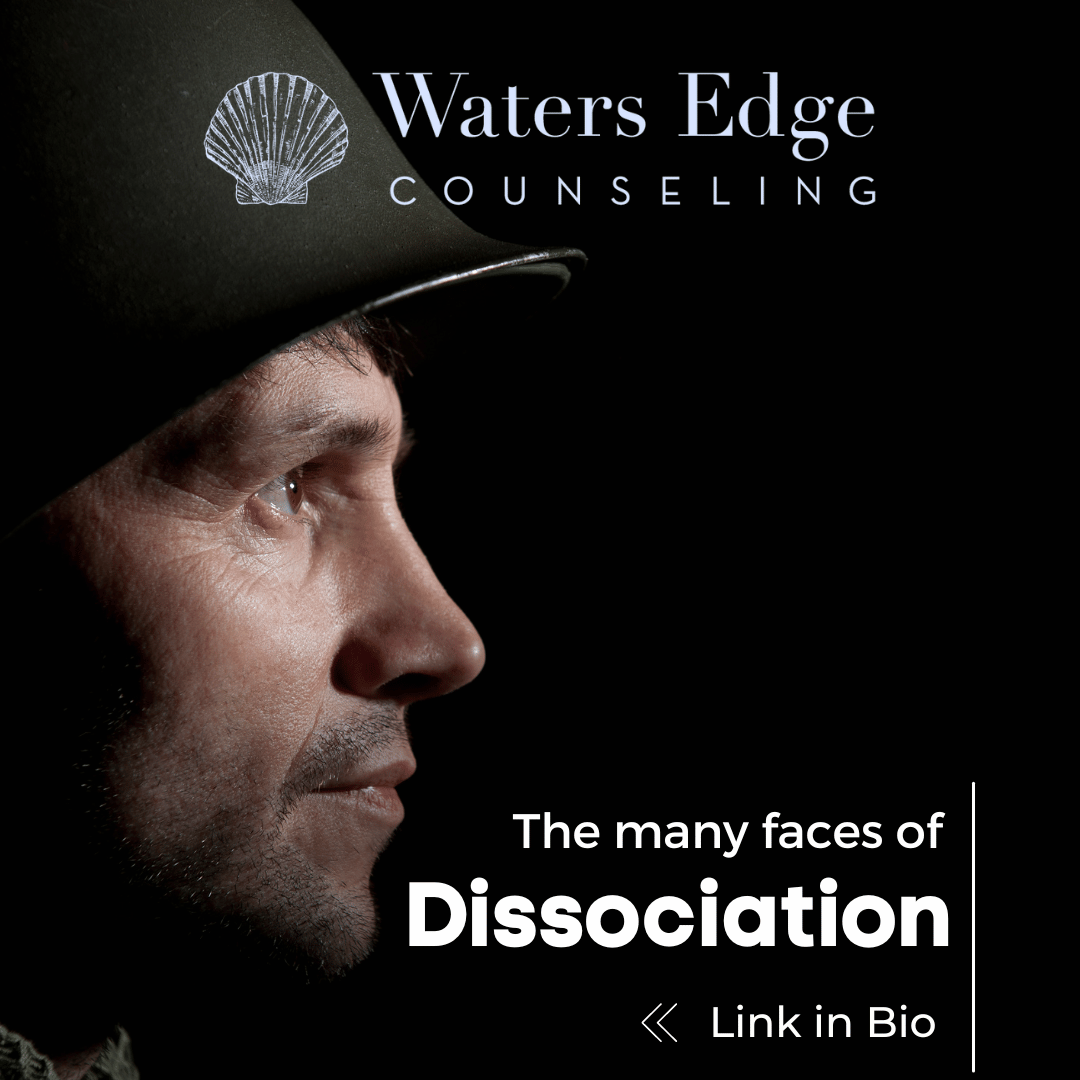Dissociation wears many faces. It can be difficult for patients to know if they are dissociating and what to do about it. Dissociation is a complex psychological phenomenon that involves a disconnection between thoughts, identity, consciousness, and memory. It is often considered a defense mechanism that the mind employs in response to overwhelming stress or trauma. Today, we are going to discuss the many faces of dissociation and how they may show up in the lives of you or a loved one.
What is Dissociation?
Dissociation is a mental process where a person’s thoughts, feelings, memories, or sense of identity become separated from their conscious awareness. In other words, dissociation is not a single, uniform experience, but rather a spectrum of responses that individuals may employ as a coping mechanism.
Types of Dissociation
- Depersonalization: This involves feeling detached from one’s own body or self. Individuals experiencing depersonalization may perceive themselves as observers rather than active participants in their own lives.
- Derealization: In derealization, the external world may appear distorted or unreal. Colors may seem dull, sounds may be muffled, and the environment may feel dreamlike or unfamiliar.
- Amnesia: Dissociative amnesia is characterized by memory loss, often related to a traumatic event. This can involve forgetting specific details or even entire periods of time.
- Identity Disturbance: This is a more severe form of dissociation and is often associated with Dissociative Identity Disorder (DID). In identity disturbance, different aspects of one’s identity may take control at different times.

Symptoms of Dissociation
- Spacing out or daydreaming: Individuals may find themselves mentally checking out of reality for periods of time.
- Memory lapses: Forgetting significant events or details of personal experiences.
- Loss of time: Feeling as though time has passed without awareness of what happened during that period.
- Emotional numbness: A lack of emotional responsiveness or feeling disconnected from one’s own emotions.
Dissociation is a complex and adaptive response to overwhelming stress or trauma. While it can provide a temporary escape from distressing situations, it is essential to recognize when dissociation becomes problematic and seek professional help. Understanding this defense mechanism sheds light on the intricacies of the human mind and the ways it copes with adversity.
Causes of Dissociation
The causes of dissociation are multifaceted and often rooted in experiences of overwhelming stress or trauma. One primary factor is childhood trauma, including physical, emotional, or sexual abuse, as well as neglect. The developing mind, faced with distressing situations, may employ dissociation as a defense mechanism. This is a way to cope with the intense emotions and protect itself from the psychological impact of the trauma. Additionally, extreme stressors such as accidents, combat exposure, or life-threatening events can trigger dissociation. This is because it offers a temporary escape from the overwhelming reality. Underlying mental health conditions, particularly post-traumatic stress disorder (PTSD), borderline personality disorder (BPD), and Dissociative Identity Disorder (DID), are closely associated with dissociation. Recognizing and understanding these causes is crucial for mental health professionals in providing effective support.
Other Services Offered With Waters Edge Counseling
We understand that you may experience issues with more than one mental health concern at a time. This is why we are happy to offer support with a variety of mental health services. Our team is happy to offer support with multiple mental health services including online counseling, clinical supervision, coping after a cancer diagnosis, and SCAD student counseling. We are also happy to offer therapy for anxiety, depression, eating disorders, substance abuse, teen substance abuse, and counseling for men. In addition, we also offer counseling for teens, child counseling, family counseling, Christian counseling, grief counseling, and marriage counseling.
Please note: While this blog is designed to help people achieve their goals, the information within each post is not a substitute for therapy or medical advice given by a licensed professional.

